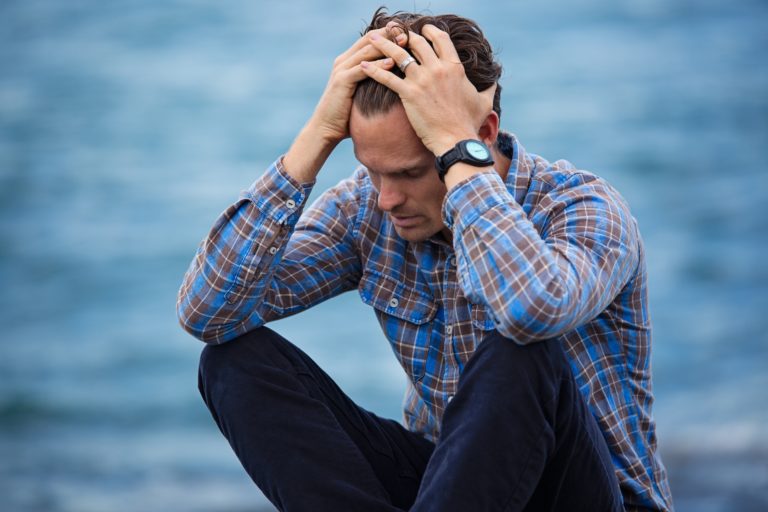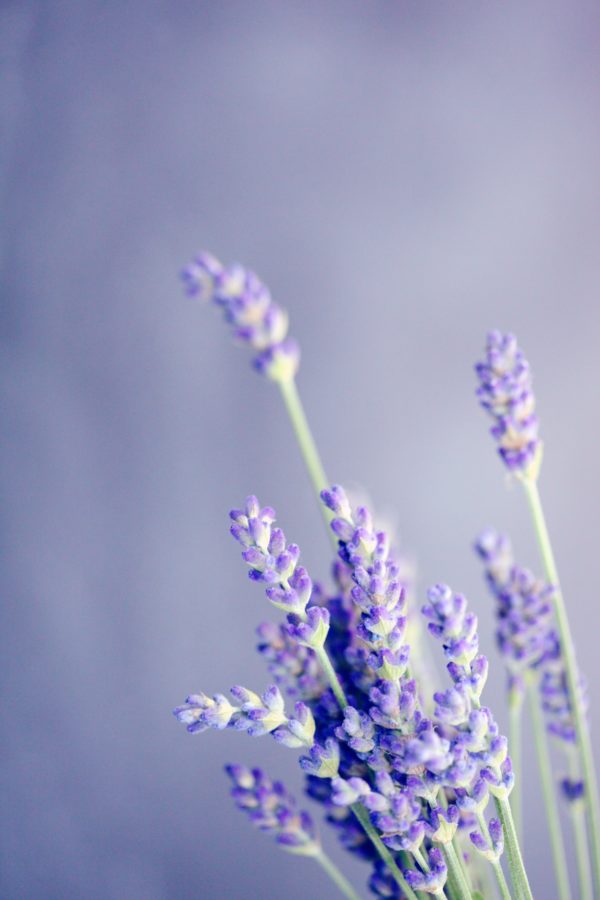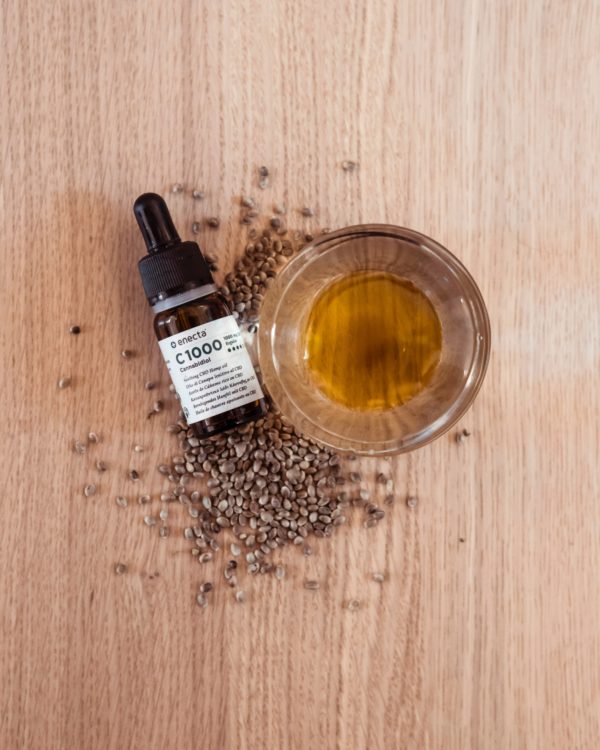How to Reduce Anxiety With Natural Treatments

Nearly 1 in 5 Americans suffer from anxiety, making it the most commonly diagnosed mental disorder.
How to Reduce Anxiety Using Natural Treatments
The Anxiety and Depression Association of America estimates that 40 million Americans deal with some type of anxiety disorder. That’s nearly 1 in 5 Americans who experience symptoms to cause distress in their everyday lives. Even more startling than the number of diagnoses, only 36.9% receive treatment for a condition that significantly impacts your mental health. Thus, reducing anxiety is quite common and essential for a lot of us.
There are many factors that cause anxiety, including DNA, lifestyle and neurological conditions. Most available treatment options involve medication that can alter your brain chemistry, but there are many natural remedies that you can use to ease symptoms. Learn more about methods you can use to take back control of your mental health and live happier.
Chamomile
Known for its calming effects, chamomile can provide relief from common anxiety symptoms. You don’t need a prescription either as the herb can be found in your local grocery or natural foods store in many forms including tea, liquid extracts and even capsules. While it is not certain how the medicinal properties work, it is an effective long-term treatment according to a 2017 University of Pennsylvania study. Subjects who took between 500 and 1,500 mg of chamomile capsules a day showed measurable improvements in managing anxiety symptoms versus those who were given placebos.
The daisy-like flower belongs to the Asteraceae plant family and provides many health benefits such as improving sleep, heart health and digestive functioning. The calming sensation that is commonly experienced is credited to the antioxidant, apigenin, which binds itself to brain receptors that slow the nervous system. It is believed that the tranquilizing effect of apigenin can reduce unpleasant feelings like increased heart rate and racing thoughts, but more research is needed to confirm these claims.
A hot cup of chamomile tea is a great way to unwind after a stressful day and get yourself into a positive mental state. It is even known to help with depression, a common disorder that coexists with anxiety. While it is safer than benzodiazepines that doctors typically prescribe, those who are on medications that cause drowsiness and others who have asthma or allergic reactions should be wary of potential side effects. Consult with your doctor before you decide to explore chamomile as an alternative treatment.
Lavender
One of the favorite choices of aromatherapy is lavender, known for its beautiful purple flowers and pleasant smell. The use of lavender for medicinal purposes dates back to ancient times where it was used for everything from boosting appetite to mummifying bodies in Egypt. In the modern world, lavender is used in oil form to heal skin inflammation, digestive issues, pain and various mental health conditions.

Lavender flowers are used for aromatherapy to relax the mind and help manage symptoms of anxiety.
Research on the effects of lavender in easing anxiety is still in the process of providing scientific evidence, but there have been positive results. The International Journal of Psychiatry in Clinical Practice published an evidence-based review of a clinical study that tested the effects of 80-milligram lavendula oil capsules on patients who have an anxiety disorder. Results were significant and showed that Silexan (lavendula oil capsules) relived symptoms in patients as effectively as the commonly prescribed benzodiazepine, Lorazepam, when compared to the study subjects in the placebo group.
Just the scent of lavender is enough to calm the mind. You can purchase lavender in mist spray bottles and use it on your pillow to promote a night of restful sleep. Using the herb doesn’t cause the side effects of motor impairment common in other pharmaceutical options, making it a perfect remedy any time of the day. Lavender is considered safe for most adults but has been shown to slow the central nervous system and can affect natural hormones in prepubescent children. Women who are pregnant or breastfeeding should avoid use as it hasn’t had enough research conducted to conclude whether it has any side effects on infants.
Cannabidiol (CBD) Oil
Rising in popularity with the growing acceptance of cannabis, CBD Oil is becoming more widespread in treatment for mental health issues. Legal in many states, CBD comes in many forms including vapor juice, gummies and tinctures. Cannabidiol doesn’t contain THC, the compound that produces the euphoric high that marijuana users experience, making it a safer alternative that won’t impair users.

CBD oil is becoming a popular natural option for managing anxiety.
There isn’t widespread research to state exactly how the compound works, but cannabinoid receptors have a role in the neurochemical processes behind CBD’s effectiveness. Cannabidiol is full of chemicals that bind to these receptors that regulate serotonin levels that common antidepressants target to alleviate anxiety. It has also been used as an alternative for alleviating problems associated with depression and pain.
Emerging research keeps adding to the evidence of the effectiveness of CBD Oil as a remedy for anxiety. There can be more side effects than other natural herbs, which include changes in mood, dizziness and low blood pressure. Be sure to consult your doctor and mental health professional before beginning the use of CBD Oil to find out if it is the right treatment for you. Also, check your state laws to make sure that cannabidiol is legal to consume where you live.
Kava Kava
Derived from the roots of Piper methysticum on the Pacific Islands, Kava Kava is a special herb that has been found to be effective due to its calming effects. Kava won’t be the first recommendation from your doctor as a treatment option since it is not regulated and research is still in the process of finding evidence for medical prescription. It can have mind-altering effects and cause liver damage when used in large amounts, creating the potential for health issues and substance abuse.
Kava Kava has a mild sedative effect that calms the mind and creates euphoria, keeping your mind from ruminating on stressful thoughts. Kavain is the main constituent in Kava extract that is believed to cause mood alterations and reduce anxiety, but there isn’t enough research to make it medically proven as an effective treatment. Despite the lack of research, it is becoming a popular choice as a remedy for people seeking alternatives to prescription alternatives.
You can find this herbal remedy in various forms, including liquid extracts, capsules and a popular hot tea brew that uses the roots of the kava plant. Some side effects to be aware of are headaches, dizziness and yellow skin that is similar to jaundice that occurs with liver damage. Consult your doctor and mental health practitioner to see if Kava Kava is a safe alternative.
Meditation
Meditation is the most recommended and proven method for managing anxiety. It is completely substance-free and anyone can practice it with simple instructions. All it requires is sitting and focusing on your breath, which benefits your overall health by providing mental clarity and lowering your blood pressure. Meditation may seem like a religious or even mystical to beginners, but it has practical use in improving your wellness.
Meditation can reprogram neural pathways in the prefrontal cortex or the part of your brain that sits behind the forehead. By developing a practice, your brain will be trained to handle emotions better with improved cognitive abilities. All that is required is 5-30 minutes of your time each day that has both short and long term benefits. Not only will you reduce your anxiety, but you will also develop loving-kindness for yourself which helps with depression.
It is not always easy to begin a meditation practice as it requires focus and patience. There are many great books and meditation apps available to aid you in getting started. Almost any doctor and mental health professional will suggest you incorporate meditation into your life when you seek advice on how to manage your anxiety. If you are experiencing more severe symptoms that cause panic attacks or thoughts about harming yourself, seek medical attention.
Find what works best for you!
With so many alternatives for relieving symptoms that cause you mental distress, it may take experimentation and medical advice to find what works out best for you. You can find out if you are biologically predisposed to anxiety using genetic testing to see what lifestyle changes can help. Mental health professionals should always be consulted so they can assess and diagnose your condition. Many factors that cause anxiety disorders that are out of your control, so don’t be ashamed to ask for help!

We are all unique. Our approach to anxiety prevention should be no different.
